Major Power Relations
Your Present Location: PROGRAMS> Major Power Relations-
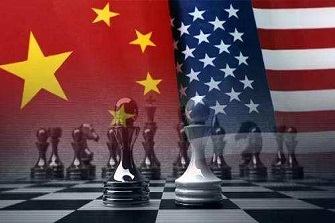
Zhang Jingwei: Equal dialogue key in Sino-US trade talks
The leaders of China’s and the United States’ economic and trade consultation teams spoke over the phone on the evening of July 9 on the implementation of the consensual exchanges agreed by the two nations at the recent G20 summit. The Americans appear to be showing goodwill for the upcoming round of talks. The US Department of Commerce has announced that it will partially lift the Huawei ban by removing restrictions on exports to the firm and eliminating tariffs on 110 Chinese products that were previously hit with a 25% levy.
2019-08-21 -
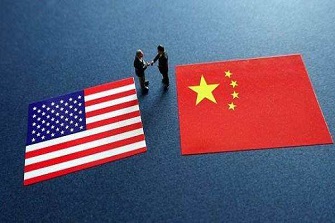
Zhang Jingwei: Sino-US relations enter ‘new normal’ stage
As the Group of Twenty summit in Osaka concluded, US President Trump agreed to allow American companies to sell their products to Chinese tech giant Huawei Technologies. The results of the meetings between Chinese President Xi Jinping and Trump ended up being rather gratifying. Trade conflicts between China and the United States have been going on for more than a year, with the conflicts extending to the fields of science and technology, and with the US landing big hits by imposing tariffs on goods worth at least US$250 billion.
2019-08-21 -
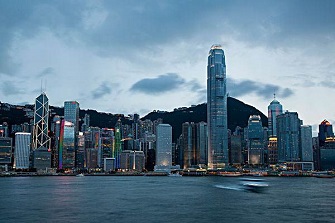
Politicians told HK not a chip for bargaining
Chinese officials and experts have urged politicians in the United States to stop using the situation in Hong Kong as a bargaining chip for negotiations or as leverage for fueling competition with Beijing. Senior politicians such as US Vice-President Mike Pence and House Speaker Nancy Pelosi have spoken out on or pushed legislation concerning the recent violent protests in the city. Pence angered China on Monday by telling the Detroit Economic Club that "for the United States to make a deal with China", Beijing needs to "respect the integrity of Hong Kong's laws".
2019-08-21 -
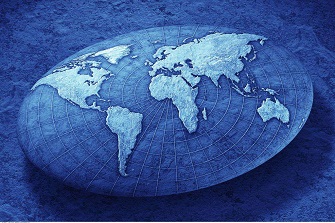
William Jones: Beware the policy of 'strategic tension'
Major unrest in Hong Kong, provocative moves by India's leader in Kashmir, upgraded arms sales to Taiwan, and an unraveling of the nuclear non-proliferation regime are all indications of a heightened degree of tension in the world community. And this is occurring against the background of increased trade tensions and a general sense that the world is facing an imminent collapse of the international financial system.
2019-08-20 -
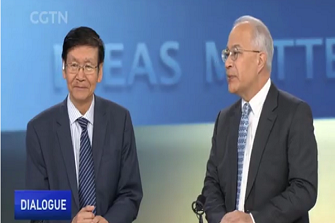
Are China-U.S. trade talks back on track after Trump's suspension of some tariffs?
The United States announced on Tuesday that it will suspend certain tariffs on a range of Chinese imports until mid-December for "health, safety and national security" factors, while saying that the 10-percent tariff on other items will go into effect as planned on September 1. As the next round of trade talks is scheduled to take place in September, does the announcement by the Office of the United States Trade Representative (USTR) raise hopes for further progress?
2019-08-20 -
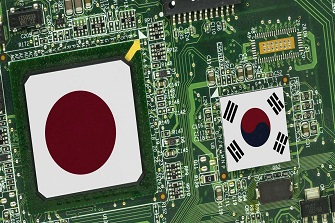
U.S. to take role in the latest Japan-South Korea rift?
Tensions between South Korea and Japan are growing as South Korea announced the plan to drop Japan from its "white list" of countries with fast-track trade status from September. This tit-for-tat move followed Japan's action to remove South Korea from its "white list" after an earlier decision in July to restrict exports to South Korea of three key, high-tech materials.
2019-08-20 -
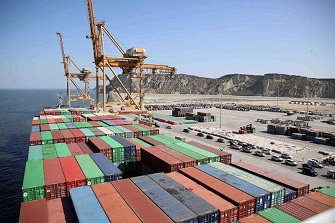
72 years after independence, what has Pakistan achieved?
Pakistan is celebrating the 72nd anniversary of Independence Day amid escalated tensions with India after the latter revoked the special status of Jammu and Kashmir, flaming a territorial dispute that has dragged on for over seven decades. Pakistan responded by downgrading diplomatic relations and suspending bilateral trade ties with India. It also expelled India's high commissioner and vowed to challenge the decision at the UN Security Council.
2019-08-20 -
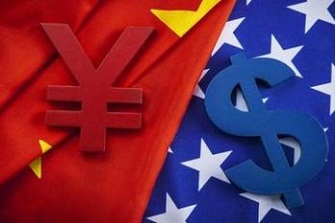
Zhao Minghao: Trump Pushes China-US Trade Negotiations Toward Long-term Impasse
By deciding to impose a 10-percent tariff on the last remaining freely traded $300 billion of Chinese exports to the US starting in September. US Department of the Treasury designated China as a “currency manipulator” a designation. China decided to suspend its purchase of US agriculture products. Though China and the US had agreed to start their 13th round of trade talks in Washington in September, we have reasons to worry these anticipated negotiations may not occur as scheduled as tensions escalate between the two countries.
2019-08-19 -

Long Xingchun: Pakistan unrelenting on Kashmir issue
Pakistan is prepared to "fight to the end" over the Kashmir issue if necessary, Prime Minister Imran Khan said on Wednesday during a speech from Pakistan-controlled Kashmir. "I don't want war but it's clear now that they [India] don't want to talk," Khan said. Pakistan's 73rd Independence Day was celebrated on Wednesday as "Kashmir Solidarity Day," so as to express support for the people of Kashmir.
2019-08-19 -
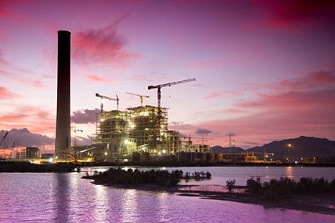
Ding Gang: China powers the Indonesian dream
Seated opposite us in a conference room, Tulus Martini, a young Indonesian mother, was answering our questions in fluent Chinese. A blue sign was hanging on the wall. It read "Jawa 7 Coal-Fired Power Plant. "In 2017, China Energy Engineering Group Zhejiang Thermal Power Construction Co Ltd started building this power plant in Kota Serang in the northwest region of Java, Indonesia. The plant is a key project of Indonesia's medium-term plan to add 35 million kilowatts of generation capacity, as well as China's first overseas mega-kilowatt class thermal power project.
2019-08-15 -

Wang Peng: Trade conflict will prompt China to develop a more independent monetary system
The China-US trade war began over a year ago, the US' economic bullying has since spread to the financial and currency sectors as the US has designated China as a currency manipulator.This is not the first time the US has waged a trade war, and China is not its first victim. Looking through history, the US has always gained upper hand and left its opponents with a "lost decade" or decades. In this history, there are lessons to be learned.
2019-08-15 -

Bian Yongzu: The Shorter the List, the Greater the Opportunity
Three administrative documents released by the Chinese government, Special Administrative Measures on Access to Foreign Investment (2019 edition), Free Trade Zone Special Administrative Measures on Access to Foreign Investment (2019 edition) and Catalogue of Industries for Guiding Foreign Investment , came into effect on July 30, 2019. The latest revision includes new opening-up measures in services, manufacturing, mining and agriculture, allowing full foreign ownership in more sectors, with no additional limits added. Three changes highlight the new negative list.
2019-08-14 -
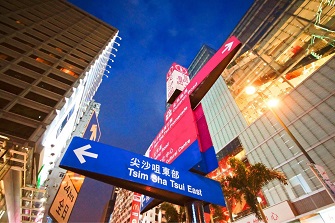
More developers voice support for HKSAR govt
On Tuesday, 41 developers belonging to the Real Estate Developers Association (REDA) of Hong Kong issued a joint statement voicing their opposition toward increasingly violent protests and vandalism in the city, saying these incidents are seriously encroaching on Hong Kong's core value of the rule of law and increasing the economic downward pressure on the city.
2019-08-14 -

Danilo Türk: Tariffs are a blunt and old fashioned way to regulate trade
The thundering trade war between China and the U.S. shows no sign of cooling down. The latest round of escalation came when the United States threatened to slap 10 percent tariff on an additional 300 billion U.S. dollars of Chinese goods and China responded by suspending new imports of American agricultural goods. China and the U.S. are still far from reaching a consensus, but the consensus of the world at large is: the trade war is wreaking havoc the global economy.
2019-08-14 -
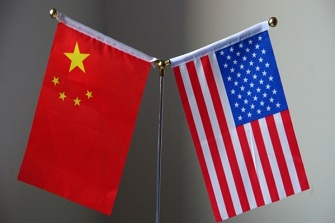
China, US must seek new balance of trade
China and the United States need to establish a new balance of trade, finance and technology cooperation, while avoiding a full-blown confrontation amid intensified tensions, experts said. Their comments came as Washington threatened to impose an additional 10 percent tariff on $300 billion worth of Chinese goods starting Sept 1, and labeled China "a currency manipulator".
2019-08-14 -
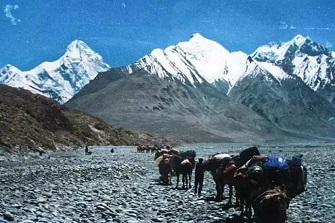
Liu Zongyi: Kashmir issue proves India unqualified for UN Security Council seat
Through a presidential order, the Indian government on August 5 scrapped Article 370 of Indian Constitution, which granted special status to the India-controlled Kashmir. The move means the region, an internationally recognized disputed territory between India and Pakistan, was forcibly transformed into alleged Indian territory by New Delhi. This is unacceptable to Pakistan and has triggered a serious confrontation between the two countries.
2019-08-13 -
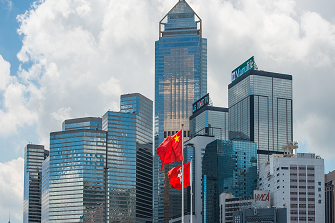
William Jones: Who's 'mucking about' in Hong Kong, and why?
The world has been taken by surprise by the violence and the duration of the ongoing turbulence in Hong Kong. While demonstrations in Hong Kong do occur on occasions, the violent eruptions coming out of this demonstration was unexpected. However, it is probably not "spontaneous."
2019-08-13 -
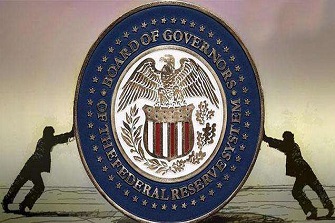
Zhao Minghao:Washington is choking off U.S.-China economic and trade negotiations
On August 9, the International Monetary Fund (IMF) released a report saying that the renminbi (RMB) is not being significantly undervalued or overvalued, and a more flexible exchange rate will provide greater room to solve China's domestic problems. This statement is bound to disappoint the Trump administration. The U.S. Treasury Department, which labeled China as a "currency manipulator," had originally hoped to seek backing from the IMF.
2019-08-13 -
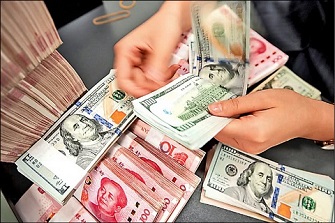
Trade war could morph into currency war as US is likely to escalate conflict
Escalating financial friction between China and the US as a side effect of the trade war is becoming a hot topic among Chinese economists, with some of them cautioning that the trade row might worsen into a finance war between the two countries.
2019-08-12 -
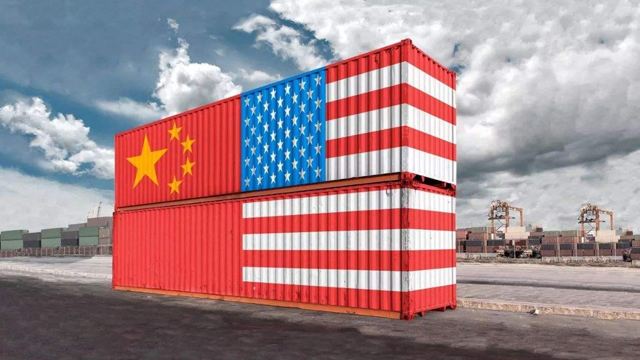
US may fall further in ranks of China's trading partners
China's overall foreign trade expanded steadily in the first seven months of the year, with a 4.2 percent year-on-year increase, while trade with the US declined, customs data showed Thursday. Experts noted that the US, which was formerly the No.2 trading partner of China, might fall into fourth spot soon if trade tensions worsen.
2019-08-09
























































































 京公网安备 11010802037854号
京公网安备 11010802037854号





